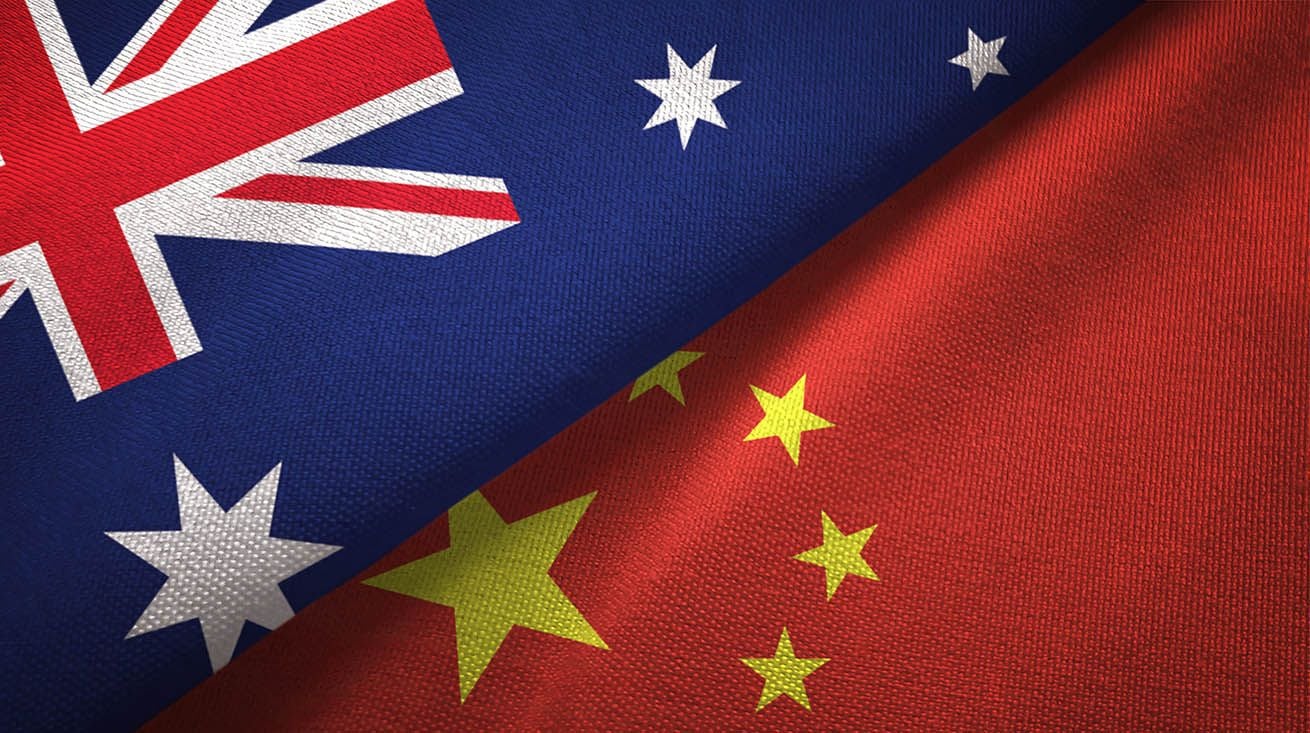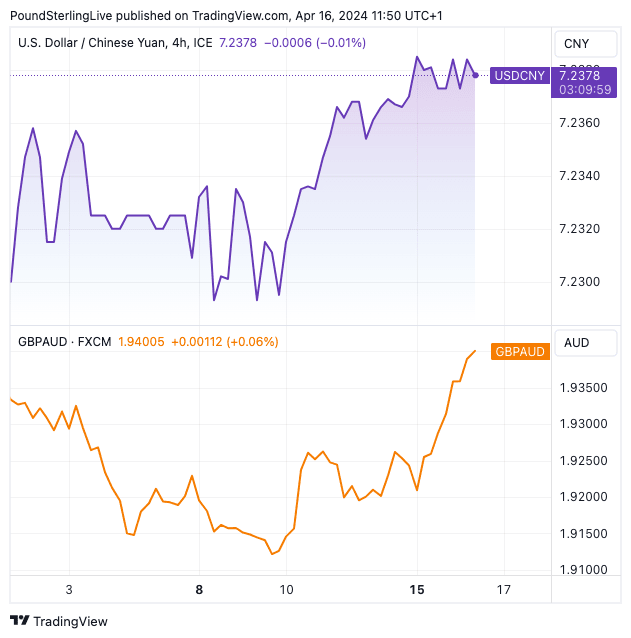Australian Dollar Sold on Lower Chinese Renminbi Fix
- Written by: Gary Howes

Image © Adobe Images
A fall in the value of the Chinese Renmimbi has weighed on the Australian Dollar, confirming the ongoing tight correlation between the two currencies.
The Australian Dollar was weaker across the board after Chinese monetary authorities fixed the Yuan at a lower-than-expected level against the U.S. Dollar, signalling it was prepared to let the domestic currency weaken.
The development points to downside risks for those currencies that have a high correlation with China, such as the Aussie Dollar.
Compare GBP to AUD Exchange Rates
Find out how much you could save on your pound to Australian dollar transfer
Potential saving vs high street banks:
A$4,875.00
Free • No obligation • Takes 2 minutes
"Investors are hyper-sensitive to the PBoC's daily USD/CNY fixing," says Chris Turner, lead currency analyst at ING Bank. He explains the prospect of the PBoC allowing a weaker renminbi is a bullish one for USD and bearish for Asian and Australasian FX.
"The highest correlations with the CNH in the G10 space are the Australian and New Zealand dollars," says Turner.
As the below chart shows, the rise in the Dollar-Yuan exchange rate also has a high correlation with the Pound to Australian Dollar (GBP/AUD):
The chart shows that as the Renminbi weakens, so too does the Aussie Dollar, resulting in GBP/AUD reaching its highest level since late March.
"The renminbi sell-off has been encouraged as well by the PBOC setting a higher daily fix for USD/CNY at 7.1028. It is the highest daily fix for USD/CNY since 1st March and will encourage market expectations that Chinese policymakers will allow USD/CNY to move gradually higher," says Lee Hardman, Senior Currency Analyst at MUFG Bank Ltd.
On March 22, the PBoC experimented with a fixing above 7.10, which ING notes resulted in heavy losses for both the onshore and offshore renminbi.
"Last night, the PBoC fixed USD/CNY at 7.1028 - suggesting it was acceding to market pressure to allow the renminbi to weaken," says Turner.
"In short, should the PBoC start to allow a higher series of USD/CNY fixings - acceding to market pressure - it could prove a boost to the dollar around the world," he adds.
Owing to the Australian Dollar's association with China's currency, further GBP/AUD upside would be expected under such circumstances.





